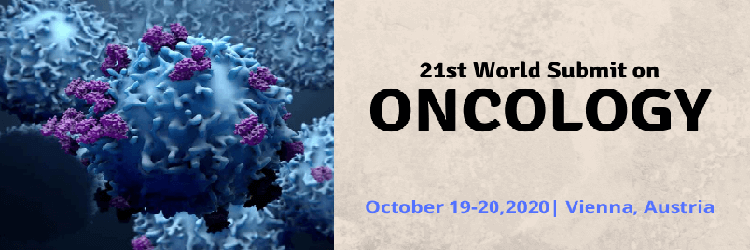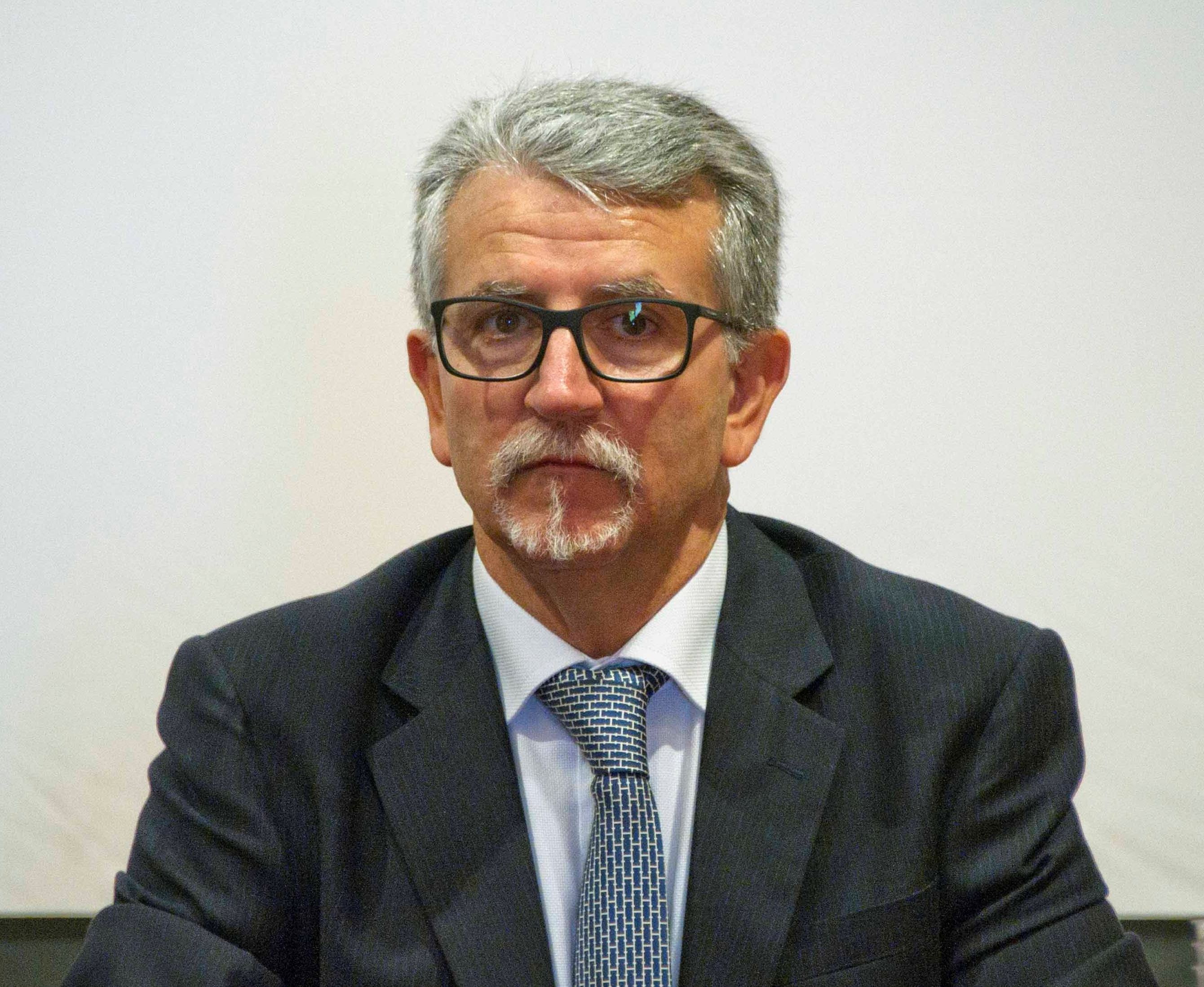Conference Series extends its welcome to the conference 21st World Submit on Oncology and Radiology during October 19-20, 2019 Austria, Vienna with a theme “New Challenges and Explore the Prevention of Oncology”.Conference Series llc LTD Organizes 1000+ Conferences Every Year across USA, Europe & Asia with support from 1000 more scientific societies and Publishes 700+ Open access journals which contains over 100000 eminent personalities, reputed scientists as editorial board members. Oncology 2020, Conference will focus on educational research directed toward its impact on clinical outcomes, through oral and poster presentations, educational workshop sessions, and influential plenary presentations. Oncology 2020 is a perfect platform to find out how cancer and Oncology research innovations helpful to the Medical, Health and human society. Conference will mainly focus on the trending topics during presentations of the two-day event, which reflect current education, research, developments and innovations internationally in the field of cancer, oncology and medical sectors.
Sessions and Tracks
Track 1: Ophthalmic Oncology
Eye Cancer can disturb all portions of the eye, and can be a malignant tumor or a malign tumor . Perceptiveness tumors can be main and metastatic cancer .The two furthermost mutual cancers that spread to the eye from another organ are breast cancer and lung cancer. Other less common sites of origin include the prostate, kidney, thyroid, skin, colon and blood or bone marrow.
-
Eye cancer and glaucoma
-
Intraocular medulloepithelioma
-
Squamous cell cancer of conjunctiva
-
Secondary eye cancer
-
Orbital and adenexal cancer
Track 2: Advances in Cancer Detection
Cancer which is the abnormal growth of cells has the potential to spread to other parts of the body. The researchers are developing new therapies and with the help of imaging technologies to detecting size shape and its stage of cancer, it is developing a way to restrict the growth of cells. Medical imaging aims in the management of patients with cancer.
-
Wilms tumor radiology
-
Colorectal cancer radiology
-
Soft Tissue tumors radiographics
-
Embryonic cell carcinoma radiology
-
Radiation-induced cancers
Track 3: Bladder Cancer
Many people with bladder cancer can have blood in their urine but no pain while urinating. There are a number of symptoms that might indicate bladder cancer like fatigue, weight loss, and bone tenderness, and these can indicate more advanced disease. Bladder cancer is one of the most common cancers, affecting approximately 68,000 adults in the United States each year. Bladder cancer occurs in men more frequently than it does in women and usually affects older adults, though it can happen at any age.
-
Blood in the urine
-
Painful urination
-
Frequent urination
-
Urgent urination
-
Urinary incontinence
-
Pain in the abdominal area
-
Pain in the lower back
Track 4: Brain Cancer
Brain Cancer market is segmented on the basis of diagnosis and therapeutics. A brain cancer involves the growth of abnormal cells in the tissues of the brain. Primary brain cancer involves malignant tumor, Brain stem tumors, germ cell tumor, pituitary adenomas, Tumor development, DIPG, Cellular biology of brain cancer, primary CNS lymphomas, Pathophysiology and Risk factors of brain cancer and prognosis of brain tumors.
-
Tumor development
-
Brain Tumour Surgery
-
Primary CNS lymphomas
-
Germ cell tumor
-
Brain Toxicology
Track 5: Pediatric Oncology
Pediatric oncology is a specialty discipline in medicine concerned with diagnosing and treating children, usually up to the age of 18, with cancer. It is thought to be one of the most challenging of specialties because, despite successful treatment of many children, there is a high mortality rate still associated with various types of cancers.
-
Focus on translational research
-
Attacking brain tumors
-
New approaches to sarcoma research
-
Advancing our understanding of neuroblastoma
-
Genomic approaches to drug discovery
Track 6:Breast cancer detection, Prevention and diagnosis
Breast cancer is the top cancer in women both in the developed and the developing world. Early detection is always better and can be done through screening methods. If family history is there for breast cancer, then one should go for the advice of a doctor.If family history is there for breast cancer, then one should go for the advice of a doctor. Screening methods are medical breast examination, mammography, and other imaging techniques. If the lump is there in the breast it can be breast cancer. X-rays are taken to closely observe the breast cancer which is known as a mammogram. After lump detection or other sign mammogram is used.
-
Self-examination
-
Mammogram
-
Mammogram side effects and controversies
Track 7: Colorectal Cancer
Colorectal cancer is a cancer that starts in the colon or the rectum. These cancers can also be named colon cancer or rectal cancer, depending on where they start. Colon cancer and rectal cancer are often grouped together because they have many features in common. Cancer starts when cells in the body start to grow out of control. Cells in nearly any part of the body can become cancer, and can spread to other areas of the body.
-
Focus on translational research
-
Attacking brain tumors
Track 8: Pediatric Oncology
Pediatric oncology is a specialty discipline in medicine concerned with diagnosing and treating children, usually up to the age of 18, with cancer. It is thought to be one of the most challenging of specialties because, despite successful treatment of many children, there is a high mortality rate still associated with various types of cancers.
-
New approaches to sarcoma research
-
Advancing our understanding of neuroblastoma
-
Genomic approaches to drug discovery
-
Harnessing the immune system to fight cancer
Track 9: Radiation Oncology Nursing
Radiation oncology is a medical specialty that involves treating cancer with radiation. Doctors who specialize in treating cancer with radiation (radiation oncologists) use radiation therapy to treat a wide variety of cancers. Radiation therapy uses carefully targeted and regulated doses of high-energy radiation to kill cancer cells. Radiation causes some cancer cells like in case of head and neck cancer or breast cancer die immediately after treatment, but most die because the radiation damages the chromosomes and DNA so that the cells can no longer divide and the tumor can't grow.This Session Includes Radio sensitizers, Cellular Radiation Oncology, Molecular Radiation Oncology, Palliative radiotherapy, Radiation physics and Clinical Radiation Oncology.
-
Radiosensitizers
-
Cellular Radiation Oncology
-
Molecular Radiation Oncology
-
Palliative radiotherapy
-
Radiation physics
-
Clinical Radiation Oncology
-
Chemotherapy
Track 10: Key role of Pathology in cancer
Pathologists are among the most important members of a patient’s cancer care team. They work to diagnose and determine the stage of cancer, setting the course for what comes next in the treatment journey.Pathology is the service that handles the blood samples and the cells and tissues removed from suspicious ‘lumps and bumps’. Cancer pathology’s key role in diagnosing and treating a complex disease, it’s important to stay up to date on new technologies and breakthroughs that continue to shape the ever-evolving landscape of cancer care.
-
Anatomical Pathology
-
Oncopathology
-
Molecular pathology of cancer
-
Pathology in cancer diagnostics
-
Cancer Cytopathology
-
Paediatric pathology
Track 11: Tumour Heterogeneity
Tumour heterogeneity relate differences between tumours of the same type in different patients, and also difference between cancer cells within a tumour cells can show distinct including cellular morphology, motility, gene expression, proliferation, metabolism, and metastatic potential. This process occurs both between tumours which is called as inter-tumour heterogeneity and within tumours called as intra-tumour heterogeneity. It plays a major role in brain Cancer.
-
Tumour Heterogeneity
-
Inter- intra tumour heterogeneity
-
Brain Tumor Microenvironment
-
Experimental: Sequencing
-
Cancer Stem Cells
-
Cancer Stem Cells
-
Breast cancer detection, Prevention and diagnosis
Track 12: Cancer Drugs
The implementation of new drug treatments has improved the prognosis for advanced cancers of the cervix, uterus, and ovary. Platinum analogs are the most effective drugs in the treatment of ovarian cancer. Fertility drugs (FD) are spreading worldwide fast and therefore many studies have reviewed the possible association between the use of these drugs and cancer. Since the drugs used for ovulation induction during in vitro fertilization (IVF) like hCG, hMG, rFSH increase the levels of gonadal hormones, concerns have grown regarding the risk of developing cancer in breast, ovary, endometrium, and other target organs.If the treatment plan involves chemotherapy you may experience physical, emotional, and/or psychological side effects related to this treatment. The side effects of ovarian cancer treatment depend on the type of treatment and may be different for each woman.
-
New Drugs in Gynecologic Cancer
-
Fertility Drugs and Gynecologic Cancer
-
Side Effects of Drugs
-
Pharmaceutical management
Track 13: Gynecologic Oncology
Gynecologic oncology is the study about any cancer that begins in a woman's reproductive organs. The five gynecologic cancers starts in the woman's pelvis at different places. Each cancer is unique by its symptoms, signs, risk factors and in their strategies of prevention. All these five different types of gynecologiccancers risk increases with the age. When these cancers were diagnosed at their early stages, the treatment will be more efficient. The five major types of cancer affect a woman's reproductive organs are ovarian, uterine, cervical,vulvar, and vaginal. All these as a group are known as Gynecologic cancer.
-
Cervical Cancer
-
Rare Gynecologic Cancers
-
Ovarian/Fallopian tube/Peritoneal Cancer
-
Endometrial Cancer
-
Uterine Cancer
-
Vaginal/Vulvar Cancer
Track 14: Radiation Oncology
Radiation oncology is one of the three basic specialties, the other two being surgical and therapeutic oncology, related to the treatment of development. Radiation can be given as a therapeutic system, either alone or in the mix with surgery or possibly chemotherapy. The mission of Advances in Radiation Oncology is to give unique clinical research went for improving the lives of people living with tumor and distinctive ailments treated with radiation treatment.
-
Brachytherapy
-
External beam radiation therapy
-
Radioembolization
-
Radiation therapists
-
Radiation oncologists
Track 15: Radiology Trends and Technology
Radiology is the science that uses restorative imaging to analyze diagnoses and sometimes also treat diseases inside the body. An assortment of imaging systems, for example, X-ray radiography, ultrasound, Computed tomography (CT), atomic pharmaceutical including Positron Emission Tomography (PET), and Magnetic resonance imaging (MRI) are utilized to analyze or potentially treat infections. Interventional radiology is the execution of (ordinarily negligibly intrusive) therapeutic methodology with the direction of imaging innovations.
-
Global radiology
-
Pediatric Radiology
-
Nephrostomy
-
Projection (plain) radiography
-
Radiation protection
Global Cancer 2019
Global Summit on Oncology & Cancer
The 3rd Global Summit on Oncology & Cancer was successfully held at Raddison Hotel Narita,Tokyo,Japan during May 6-7, 2019 with a theme “New chemotherapeutic approaches for treatment of Cancer” was a great success where renowned speakers from various reputed universities, institutions and hospitals with their magnificent presence addressed the gathering. Active participation was received from all our participants. Global Cancer 2019 Congress has received a generous response from all over the world. Thanks to all of our Organizing Committee members, Editorial Board Members, Chairs & Co-Chairs Key Note Speakers, Speakers, Students, Honorable Guests, Delegates, Media partners and all the Conference Attendees who contributed towards the success of the conference. The Global Cancer 2019 Conference was our best ever!
The meeting was carried out through various scientific sessions, in which the discussions were held on the following major scientific tracks:
-
Cancer Biology & Genetics
-
Organ-Defined Cancers
-
Types of Oncology
-
Radiation Oncology
-
Surgical Oncology
-
Cancer & Stem Cell Therapy
-
Precision Cancer Medicine & Oncology
-
Cancer Biomarkers
-
Cancer Epidemiology
-
Cancer Prevention & Research
-
Cancer Treatments & Therapy
-
Pharmacology Cancer
-
Vaccines Involvement in Cancer
-
Cancer Immunology & Immunotherapy
-
Oncology Nursing and Care
-
Complementary & Alternative Methods/Herbal & Cancer
-
Cancer Awareness and Survival
-
Cancer : Day to day lifestyle & Nutrition
-
Cancer: Social Aspects of Psychology
-
Cancer and Pharmaceutics
-
Metabolites in Cancer
-
Trends in Cancer and Chemotherapy
-
Oncological Gynecology
-
Management of Cancer
With the success of the 3rd Global Summit on Oncology and Cancer, Conference Series LLC LTD is proud to announce the “21st world submit on oncology and Radiology” to be held during June 19-20, 2020, Vienna, Austria.
For more information, please visit: https://worldoncology.conferenceseries.com/








